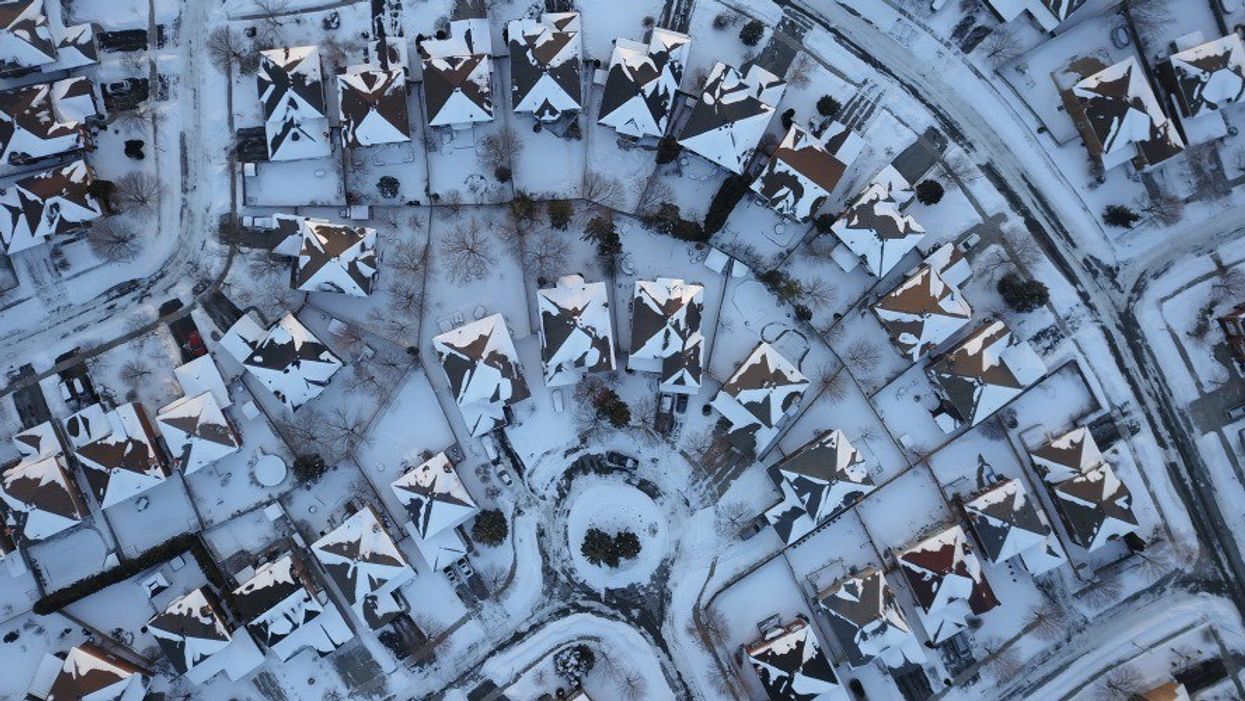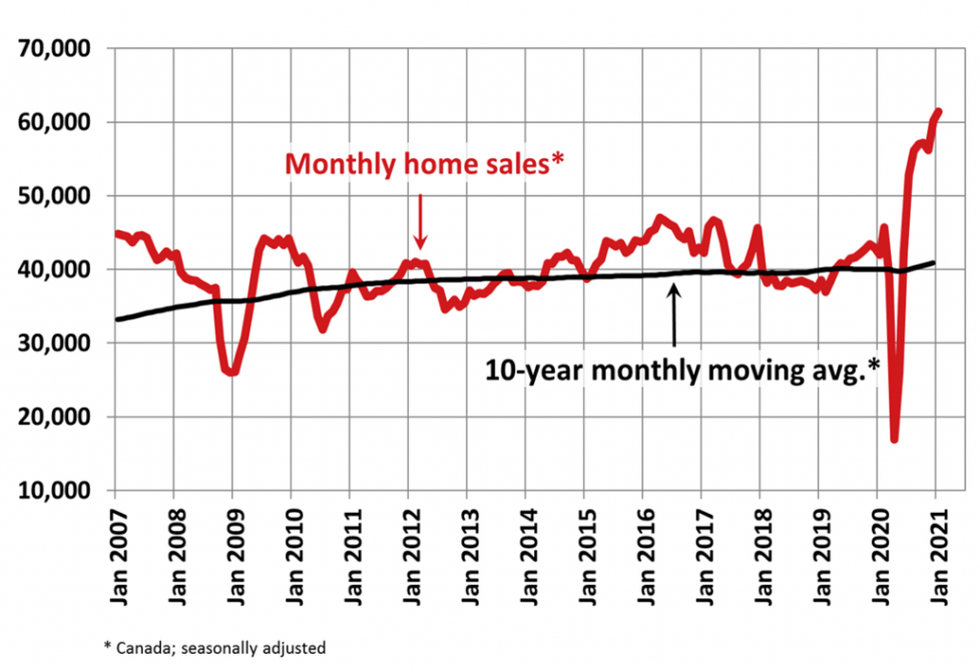The COVID-19 pandemic has primed the Canadian housing market for a particularly busy start to the new year, pushing national home sales to an all-time record in January despite cooling weather and the second wave of infections and stay-at-home orders.
"2021 started off just like 2020 ended, with a number of key housing market indicators continuing to set records,” says Costa Poulopoulos, Chair of CREA. "The two big challenges facing housing markets this year are the same ones we were facing last year – COVID and a lack of supply."
Home sales in January were up 35.2% compared with a year earlier, setting a record for the month by a considerable margin. Sales for the first month of the year were also up 2% compared with December, the Canadian Real Estate Association (CREA) said on Tuesday.
For the seventh straight month, sales activity was up in almost all Canadian housing markets compared to the same month the previous year. The month-over-month increase in national activity was led by a "mixed bag "of gains across the country, including in Edmonton, the Greater Toronto Area (GTA), Chilliwack BC, Calgary, Montreal, and Winnipeg.
Last month, 11 markets posted year-over-year declines, nine of which are in Ontario, where supply is extremely limited at the moment.
CREA says seasonally adjusted activity was running at an annualized pace of 736,452 units in January, significantly above the association's current 2021 forecast for 583,635 home sales this year.
The association says sales will be "hard-pressed to maintain current activity levels" in the busy spring season, amid the much-needed new supply. Though, CREA says that could materialize as current COVID-19 restrictions are increasingly eased and the weather starts to improve.
READ: “Rural Boom” Could Be in Canada’s Post-COVID Cards: Ryerson University
Poulopoulos noted that Canada's collective efforts to bring COVID cases down over the last month and a half are working. "With luck, some potential sellers who balked at wading into the market last year will feel more comfortable listing this year."
The increase in transactions came as the number of newly listed homes dropped by 13.3% in January, led by double-digit declines in the GTA, Hamilton-Burlington, London and St. Thomas, Ottawa, Montreal, Quebec, and Halifax Dartmouth.
This comes as the national sales-to-new listings ratio rose to 90.7% last month -- the highest level on record. The previous monthly record was 81.5%, which was set 19 years ago.
According to CREA, the largest y-o-y price gains – above 30% – were recorded in the Lakelands region of Ontario cottage country, Northumberland Hills, Quinte & District, Tillsonburg District, and Woodstock-Ingersoll.
Y-o-y price increases in the 25-30% range were seen in Barrie, Niagara, Grey-Bruce Owen Sound, Huron Perth, Kawartha Lakes, London & St. Thomas, North Bay, Simcoe & District, and Southern Georgian Bay. This was followed by y-o-y price gains in the range of 20-25% in Hamilton, Guelph, Oakville-Milton, Bancroft and Area, Brantford, Cambridge, Kitchener-Waterloo, Peterborough and the Kawarthas, Ottawa, and Greater Moncton.
What's more, prices were up 16.6% compared to last January in Montreal, while y-o-y price gains in the 10-15% range were found in Vancouver Island, Chilliwack, the Okanagan Valley, Winnipeg, the GTA, and Mississauga. Prices rose in the 5-10% range in Victoria, Greater Vancouver, Regina, and Saskatoon, and up just 2% and 2.2% in Calgary and Edmonton, respectively.
Subsequently, the actual national average price of a home sold in January was a record $621,525, up 22.8% from the same month last year.
CREA says excluding Greater Vancouver and the Greater Toronto Area, two of the country’s most active and expensive markets, cuts $129,000 from the national average price.
“The problem with this time of year is that the buyers and sellers that will in time define the Canadian housing story of 2021 are mostly all still waiting in the wings,” said Shaun Cathcart, CREA’s Senior Economist.
“It’s the dead of winter and we’re only just starting to get the second wave of COVID under control. We’re unlikely to see a rush of listings until the weather and public heath situations improve, and we won’t see buyers until those homes come up for sale."
Cathcart says the "best-case scenario" would see a lot of sellers who were apprehensive about entering the market last year, make a move in 2021.
"A big surge in supply is what so many markets really need this year to get people into the homes they want, and to keep prices from accelerating any more than they already are," added Cathcart.






















